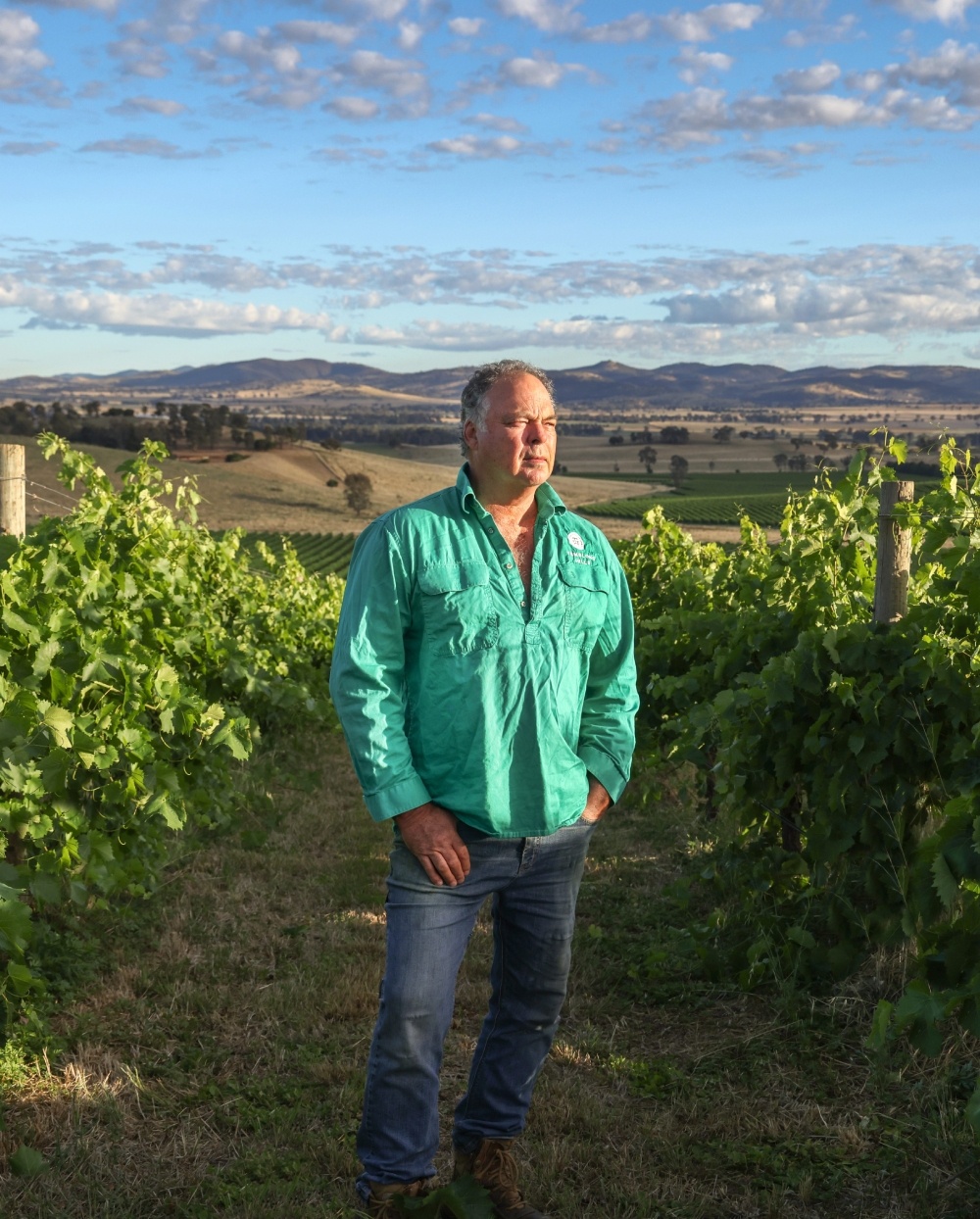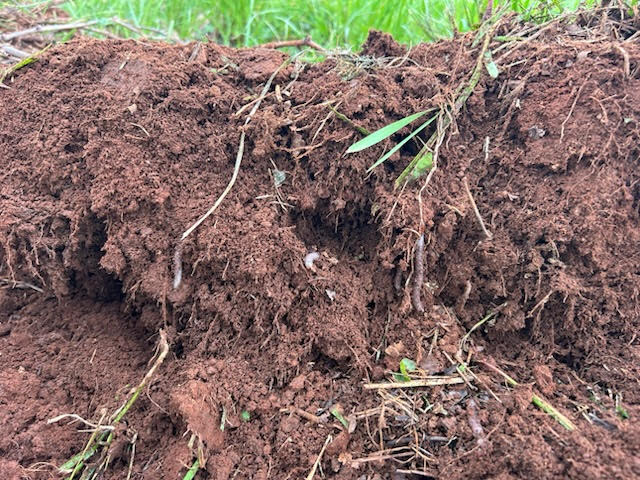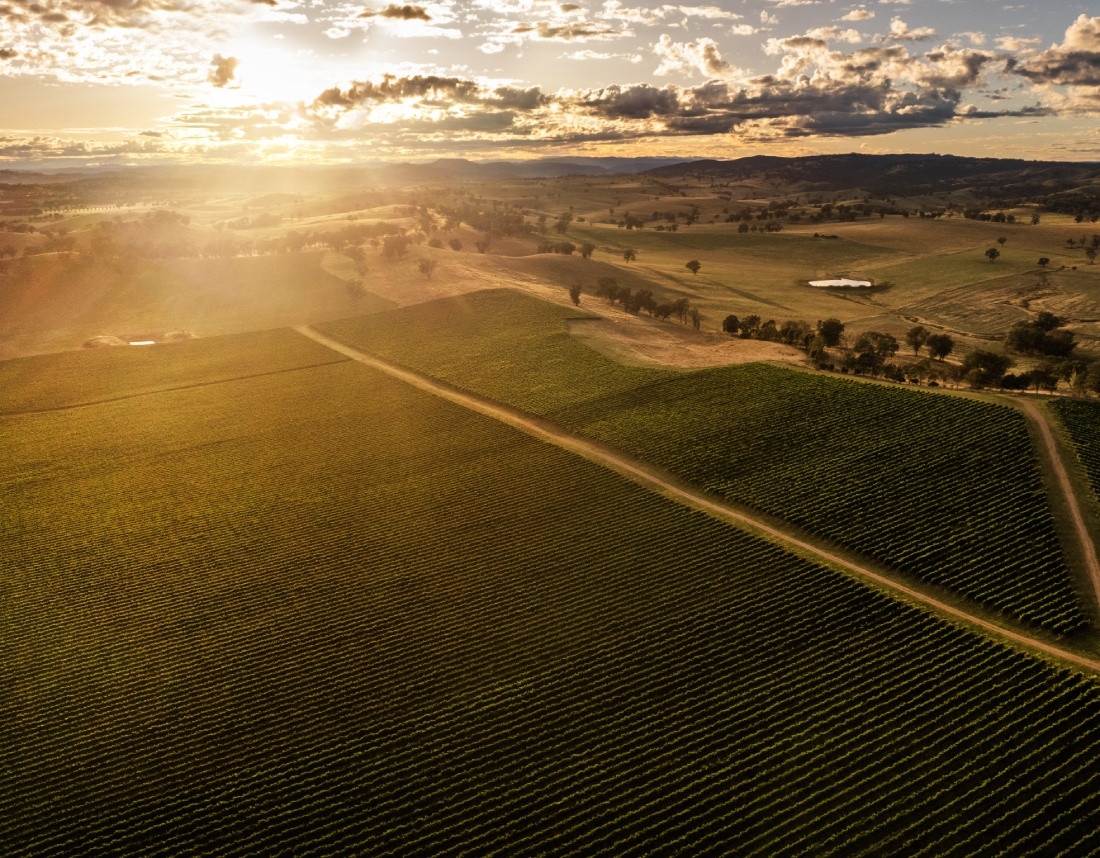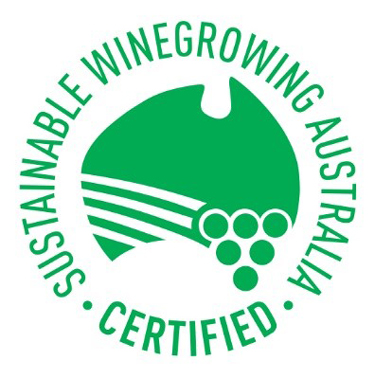Our Story


Our Winegrower, Simon Robertson - Breaking New Ground
"To see the future, you have to understand what’s come before."– Simon Robertson
Simon’s winegrowing mastery is the product of 40 years of experience and a family heritage spanning more than half a century. His journey began in the vineyards of his father, Peter Robertson – a trailblazer who planted the first vines on the south western slopes & plains of New South Wales and established the storied Barwang vineyard in the 1960s. Guided by his father, Simon’s passion for winegrowing grew through a deep connection to the soil, the rhythm of the harvest and the thrill of discovery.
From these roots, he ventured across the globe to learn from some of the world’s best before returning with a creative, sustainability-focused philosophy: Healthy living soils are the backbone of character-filled, delicious wines. He was among the first to recognise the Gundagai winegrowing region and its abundant untapped natural attributes ideal for growing grapes. Tumblong Hills was born from that vision.
Today, Simon is not only the driving force behind Tumblong Hills but a sought-after consultant across Australia and beyond – a testament to the reputation he has in the wine world.
Simon’s Philosophy - Nature First
"Great wine is made from the ground up."– Simon Robertson
Simon’s approach is simple but profound: Healthy living soils are the backbone of character-filled, delicious wines.
At Tumblong Hills, he cultivates organic-rich topsoil to produce humus, a substance rich in nutrients and micro-organisms. This natural foundation sustains vine health and allows the plants to feed themselves, removing the need for fertilisers and reducing reliance on irrigation. There are also no herbicides or pesticides used at Tumblong Hills. Simon works with the rhythms of nature, reading the nuances of the fruit to pick each block at its perfect point of ripeness.
The result? Wines that are rich, balanced, and full of character – a true reflection of the land and the man who nurtures it.


The Vineyard – An extraordinary place that produces extraordinary wine
“There’s magic here…” – Simon Robertson
Tumblong Hills sits in Gundagai, Australia’s newest winegrowing region, just beginning to make its mark. Nestled in the foothills of the Snowy Mountains, unspoilt volcanic soils, mountain waters, and cool alpine breezes create unique conditions for growing exceptional grapes.
Tucked away in undulating farmlands, where the mighty Murrumbidgee River winds its way through the landscape, this vineyard offers a scene far removed from the usual rows and vines. It's an off-the-beaten-track, quintessentially Australian experience—best savoured with a glass of wine at our welcoming cellar door.
And when the sun sets and flocks of birds drift through a pink and orange sky, you can feel the magic of this beautiful spot.
On Sustainability
Tumblong Hills is a proud member of Sustainable Winegrowing.
At Tumblong Hills, we respect the fundamentals of nature — not only for sustainability, but because it produces higher quality grapes.
Maintaining superior soil structure lies at the heart of our vineyard practices. We repurpose organic vineyard waste and encourage a diverse mix of pasture plant species to enrich and protect the land.
Our organic-rich topsoil, known as humus, teems with beneficial micro-organisms that nurture soil health and create an ideal environment for vines to feed naturally. This living foundation eliminates the need for fertilisers and reduces reliance on irrigation. No herbicides or pesticides are used at Tumblong Hills.
Favouring soil diversity, we under-vine till and welcome neighbouring sheep to seasonally graze upon and naturally fertilise our vineyard pastures. The kangaroos arrive without invitation, of course, helping us sustain an ecology of balance, harmony, and vitality across the estate.
Our sustainability principles extend beyond the vineyard to the way we package our wines. We use lean & green, low-weight glass bottles, which reduce the carbon footprint of transport and production, require less energy to manufacture and are fully recyclable, helping us minimise our environmental impact from soil to shelf.

Licence number: LIQW880010277
Liquor Licensing Act 2007. It is against the law to sell or supply alcohol to, or to obtain alcohol on behalf of, a person under the age of 18 years.

